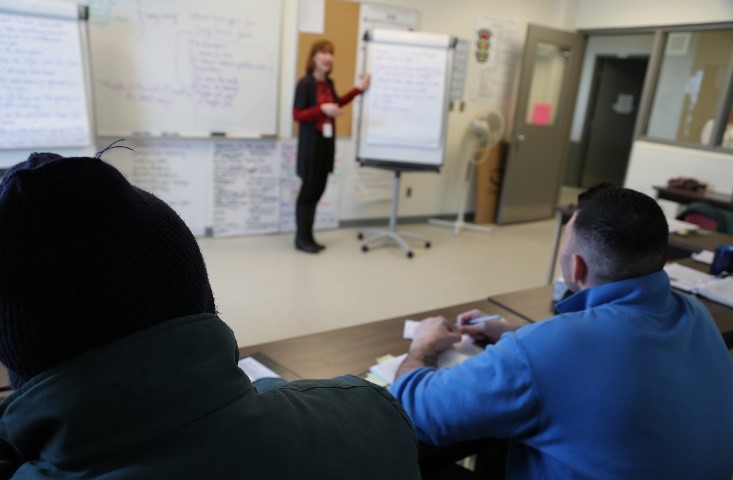Essential skills training

How a person interacts with others is a combination of essential skills, like:
- personal attributes
- personality traits
- social skills, and
- communication abilities
While different from technical skills, they are just as important for success in the workplace upon release. They complement the technical skills one learns through on-the-job training and apprenticeships.
Essential skills include:
- adaptability
- collaboration
- communication
- creativity and innovation
- digital
- numeracy
- problem solving
- reading
- writing
Learn more about Employment and Social Development Canada's:
National Employability Skills Program
In 2006, CORCAN worked with the Conference Board of Canada to create the National Employability Skills Program's (NESP), which includes gender-informed curriculums for men and women. In 2019, after CORCAN collaborated with three Indigenous organizations, culturally-informed curriculums for Indigenous men and Indigenous women were implemented.
The program:
- provides essential training that supports offenders' technical training
- is an in-class program that includes twelve sessions
- is offered to both men and women under CSC supervision
Offenders learn essential skills in-class. They practice these skills during various correctional interventions and employment assignments. The goal of the program is to better prepare offenders to find and maintain employment in the community by equipping them with pro-social:
- employability skills
- attitudes, and
- behaviours
Offenders also have the opportunity to practice these skills in realistic work environments within the institution or the community.